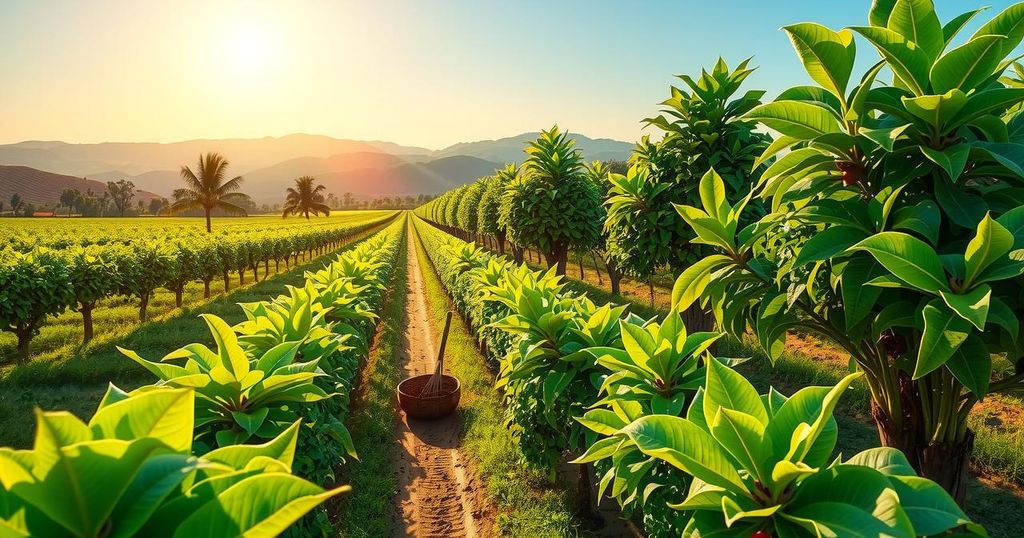Farmers in northeastern Madagascar are struggling to adapt to climate change, facing rising temperatures and altered rainfall patterns that threaten their livelihoods. Despite recognizing the challenges, many are not changing their farming practices due to financial constraints. The research highlights the need for supportive policies and practices to help these small-scale farmers.
In northeastern Madagascar, farmers are grappling with the adverse impacts of climate change, particularly rising temperatures and shifting rainfall patterns, which complicate their agricultural practices. A recent study briefed interviews conducted in 2023 among communities in Sarahandrano and Mandena, revealing that nearly all farmers face difficulties in adapting to the changing climate, with many expecting worsening conditions ahead.
Agriculture in this region primarily focuses on vanilla bean cultivation alongside rice, bananas, and coffee, all grown on small plots using hand tools. Farmers rely on local water sources and sustain their food needs with a combination of market sales and personal consumption. Approximately 75% of the surveyed farmers have experienced diminishing water supplies or have had to lessen their time spent on agricultural activities due to weather extremes, such as severe heat and heavy rainfall.
Farmers in these communities also noted an increase in agricultural pests and illness, complicating their already challenging circumstances. Interestingly, only one in five of the farmers reported taking measures to adapt, such as utilizing fertilizers or altering farming schedules. This figure is alarmingly low compared to similar studies in other nations, highlighting a potential disconnect between awareness and action.
Income disparities affect adaptation efforts, with financial constraints hindering many from pursuing alternative practices. As noted by researchers, the overwhelming majority of Madagascar’s populace lives in poverty, thus limiting access to resources for more resilient farming methods. Moreover, many suggested that policies designed to alleviate these economic burdens could significantly aid farmers with fewer financial resources.
Practices like integrating fruit trees into their crops or aquaculture in rice fields could enhance food security while aiding pest management. However, farmers face ongoing threats from natural disasters, including cyclones that frequently disrupt agriculture by uprooting crops and damaging infrastructure.
The effects of climate change are not localized, as studies show increased average temperatures and decreased precipitation across Madagascar over the last 50 years. Smallholder farmers globally, who contribute significantly to food production, find themselves particularly vulnerable to these climatic challenges.
The study’s researchers plan to broaden their survey to include 34 villages to confirm initial findings and observe the impacts of farmers’ adaptations. As climate realities intensify, farmers are confronted with the necessity of being more adaptable and resourceful, all while their family’s food security hangs in the balance.
Support for this research was provided by the NIH-NSF-NIFA Ecology and Evolution of Infectious Disease Program.
The study illuminates the pressing challenges faced by farmers in northeastern Madagascar, where climatic changes threaten established agricultural practices and food security. Despite understanding the risks, the limited adoption of adaptive methods suggests barriers such as poverty and resource availability are significant hindrances. Future research will be critical in understanding broader patterns of adaptation and the urgent need for support mechanisms tailored to assist small-scale farmers in navigating these challenges effectively.
Original Source: today.duke.edu






